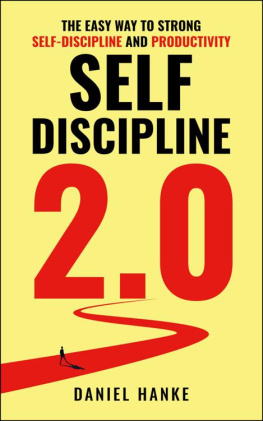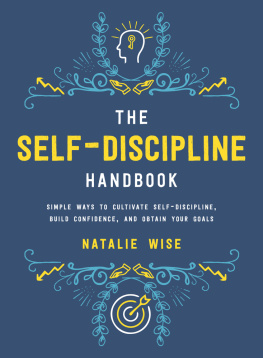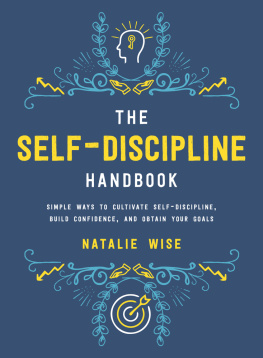Published in 2020 by The Rosen Publishing Group, Inc. 29 East 21st Street, New York, NY 10010
Copyright 2020 by The Rosen Publishing Group, Inc.
All rights reserved. No part of this book may be reproduced in any form without permission in writing from the publisher, except by a reviewer.
Editor: Rachel Gintner
Designer: Michael Flynn
Photo Credits: Cover Kevin Dodge/Blend Images/Getty Images; cover, pp. 1, 34, 6, 8, 1014, 1620, 2224 (background) TairA/Shutterstock.com; p. 5 antoniodiaz/Shutterstock.com; p. 7 Sergey Novikov/Shutterstock.com; p. 9 Syda Productions/Shutterstock.com; p. 11 MikeDotta/Shutterstock.com; p. 11 Getty Images; p. 12 Bill Johnson/ Denver Post/Getty Images; p. 13 Tom Williams/CQ-Roll Call Group/Getty Images; p. 15 VALERIE MACON/AFP/Getty Images; p. 17 Chris Ryan/Caiaimage/Getty Images; p. 18 Randy Faris/Corbis/Getty Images; p. 19 Diego Cervo/ Shutterstock.com; p. 21 Iakov Fillmonov/Shutterstock.com; p. 22 Lapina/Shutterstock.com.
Cataloging-in-Publication Data
Names: Morlock, Rachael.
Title: Hard work and determination: developing self-discipline / Rachael Morlock.
Description: New York : PowerKids Press, 2020. | Series: Spotlight on social and emotional learning | Includes glossary and index.
Identifiers: ISBN 9781725302037 (pbk.) | ISBN 9781725302228 (library bound) | ISBN 9781725302136 (6pack)
Subjects: LCSH: Self-control--Juvenile literature. | Self-control in children--Juvenile literature. | Children--Conduct of life--Juvenile literature.
Classification: LCC BF723.S25 M67 2020 | DDC 179.9--dc23
Manufactured in the United States of America
CPSIA Compliance Information: Batch #CSPK19. For further information contact Rosen Publishing, New York, New York at 1-800-237-9932.
CHAPTER one
THE KEY TO SUCCESS
Whats the difference between a beginner and a master, or between a great idea and a finished project? Usually, the answer lies in hard work, practice, and dedication. All three elements are a part of self-discipline.
Self-discipline is the inner strength that helps you be more healthy, productive, and successful in your life. It allows you to put aside something you want in the moment while you work for something you want in the future. Self-discipline also helps you stick to paths and habits that bring you closer to your goals.
The hope of reaching a goal fuels your selfdiscipline. If your goal is to have a strong body, selfdiscipline keeps you on track with healthy eating and exercise. Self-discipline comes from within you, so it works best when your goal is important and meaningful to you.

If youre aiming for good grades, youll use self-discipline to do your homework and study for tests.
CHAPTER two
THE POWER OF SELF-DISCIPLINE
You might recognize words such as willpower and self-control, which are related to self-discipline. A psychologist named Walter Mischel created whats called the marshmallow test for studying self-control. In each test, a preschooler was given a marshmallow and the choice to eat it right away or wait. If they waited, they could have an extra marshmallow. Could the children control their desire for the first marshmallow in order to have two marshmallows later?
This study continued as the preschoolers grew up. The children who used self-control in the experiment were more successful later as teenagers. Their grades and test scores were better than those of the children who hadnt waited for the second marshmallow.
Other studies show that self-discipline is more powerful than intelligence in school. Being hardworking and self-disciplined are the most important qualities in excellent students, and everyone can get better at self-discipline!

Resisting a reward thats available now in order to wait for a greater reward later is called delayed gratification. In the marshmallow test, the reward was an extra marshmallow!
CHAPTER three
LOOKING FORWARD
Practicing self-discipline is difficult. It requires you to control your emotions, desires, and actions. It often involves following through on tough decisions, which can make using self-discipline uncomfortable at first. Think about the preschoolers experience in the marshmallow test. Many children squirmed in their seats or tried to ignore the treat in front of them. They had to deal with the discomfort of waiting in order to earn their reward.
Self-discipline is geared toward the future. You have to think about your goal, even when you could have a pleasant experience in the present. Luckily, selfdiscipline gets easier with practice. As you build good habits, you dont have to struggle as much against the temptations of the moment. Creating a routine can take away some of your discomfort. Then, with every success, you can see the benefits of your self-discipline.

Procrastination gets in the way of self-discipline and can distract you from important tasks. Procrastination is putting off something that you have to do, such as homework.
CHAPTER four
STRONG ATHLETES
Self-discipline is very important for success in school, but it plays a role, or part, outside the classroom as well. No matter the goal youre going after, selfdiscipline can help you get there. If your goals are related to sports, then self-discipline is fundamental.
Athletes use self-discipline to build strong bodies and master skills. Theyre motivated by a desire to win and perform well. Self-discipline guides their commitment to healthy eating, training their bodies, and practicing. It can take years and years to become a top athlete. Athletes show both self-discipline and grit, or mental strength, when they work very hard over a long period of time in order to reach a goal.


The Olympic runner Jesse Owens once said, We all have dreams. In order to make dreams come into reality, it takes an awful lot of determination, dedication, self-discipline, and effort.
You can practice self-discipline in sports, too. You can choose nutritious foods, build your muscles with exercise, and test your skills. Self-discipline allows you to create healthy habits and stick to your athletic goals.
CHAPTER five
EXCEPTIONAL ARTISTS
What do good painters, musicians, writers, and other artists have in common? They all use self-discipline to perfect their craft. Learning artistic techniques takes practice, and artists must commit their time and energy to creating art.























